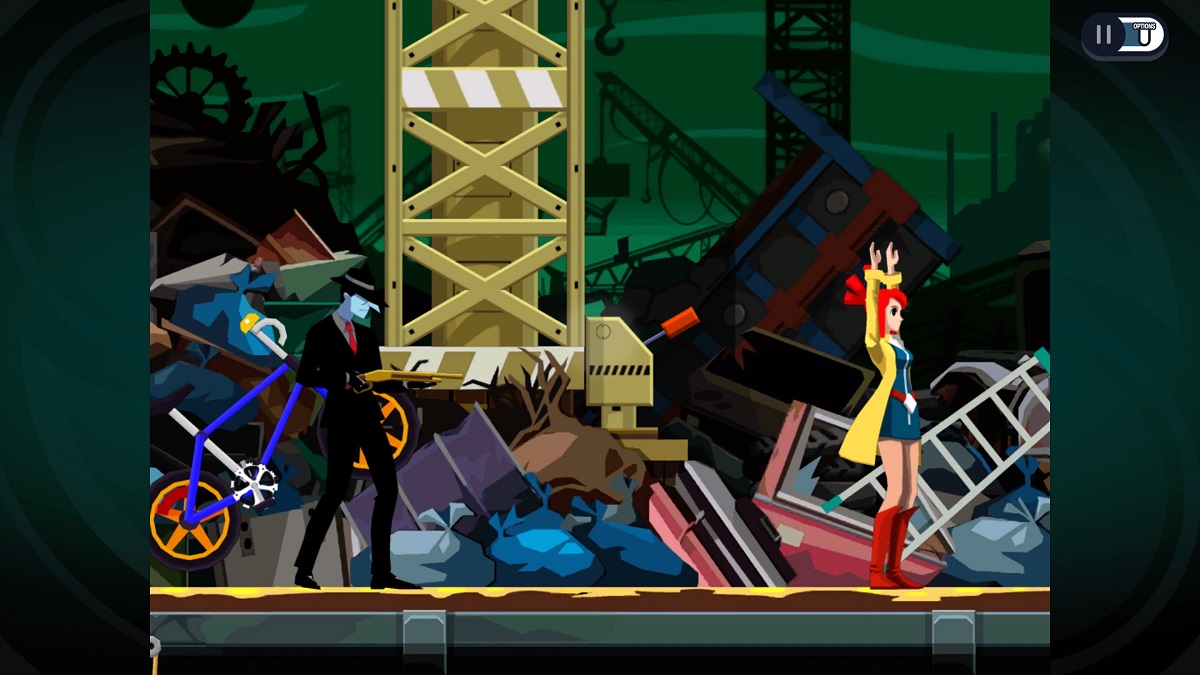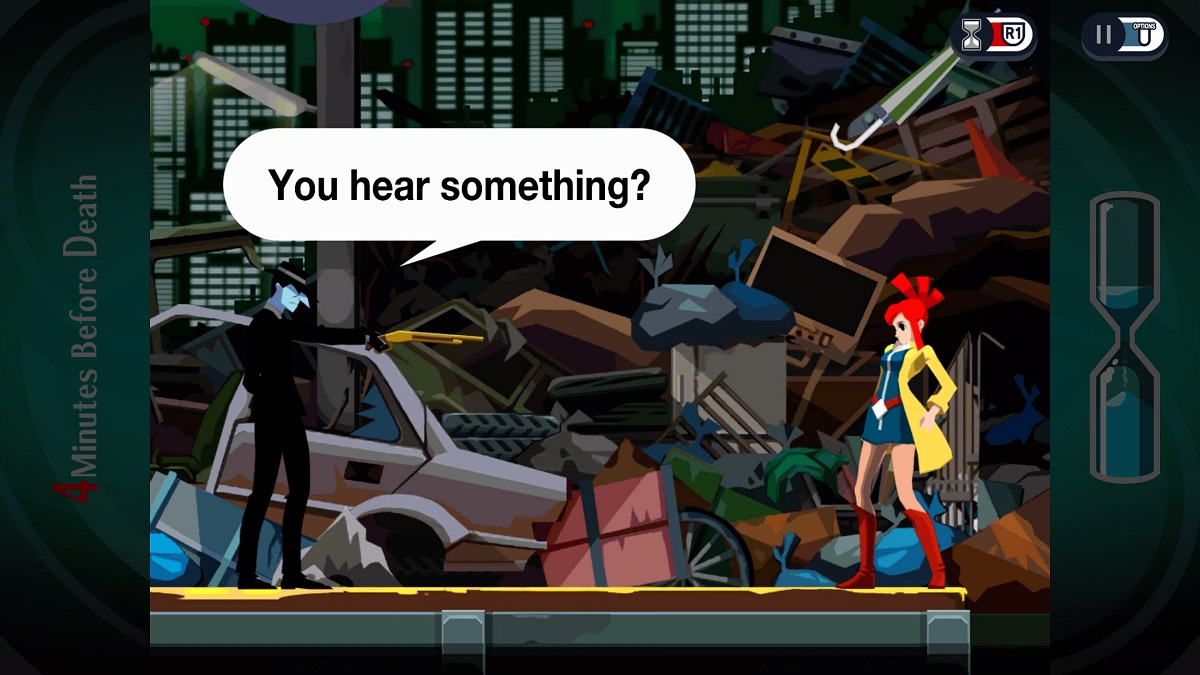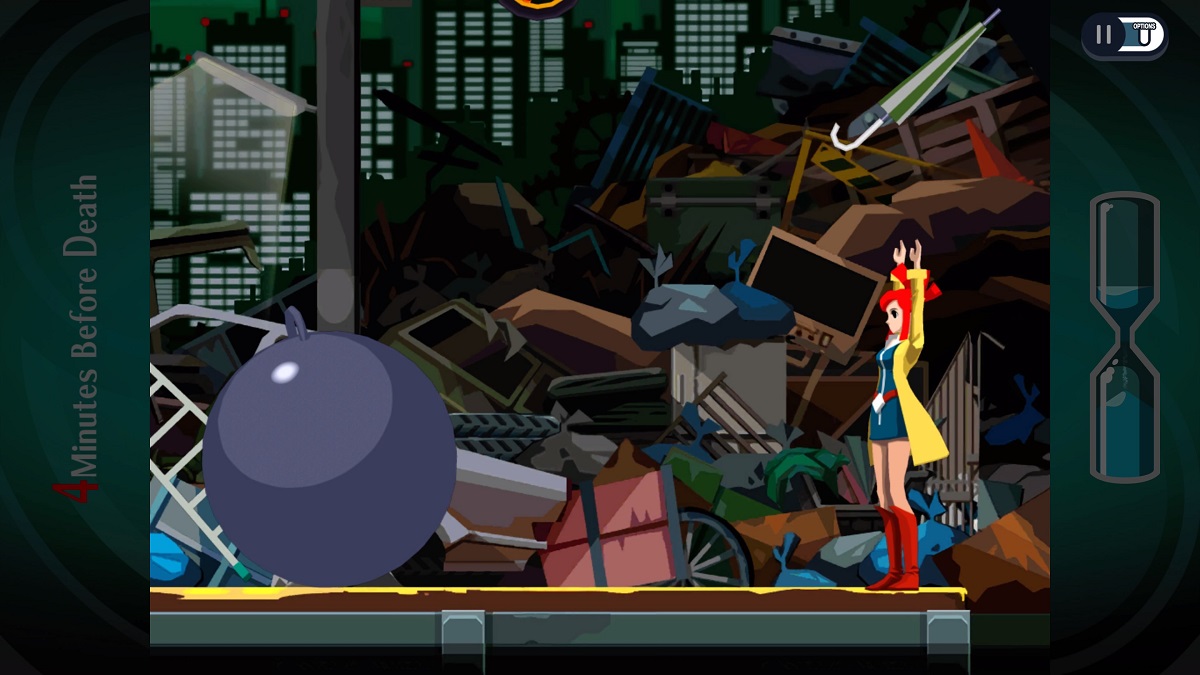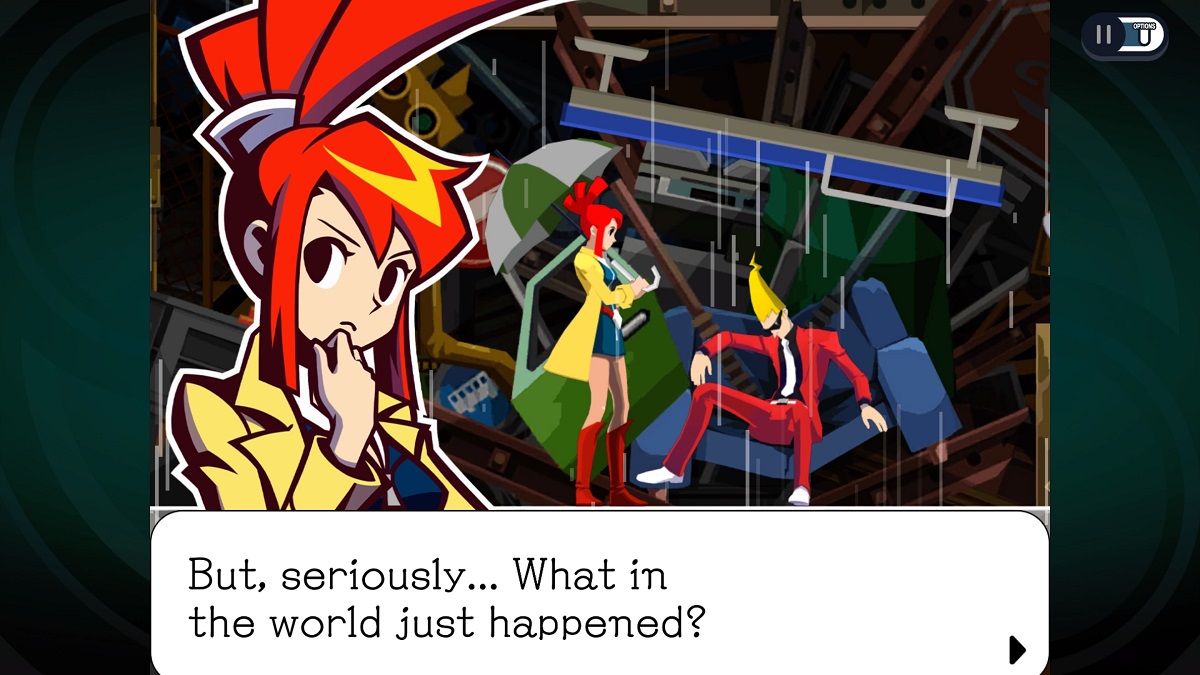I don’t usually make a habit of waxing poetic about games and franchises that died out long ago, but there are times when I long for the old-school adventure games of decades past. Despite not playing them during the heydey of the 90s, I was instantly sold on the genre after getting my hands on a few LucasArts classics. To paint a fuller picture, complete in-box copies of Grim Fandango and a few Monkey Island games sit on the top shelf of my gaming collection. All I need to complete the ensemble is a campaign button that reads “Ask Me About Loom.”
But, while “classic” adventure games have largely died out, there has been a genre revival thanks to more modernized series, which, if we’re being honest, was kicked off by Telltale Games’ stellar first season of The Walking Dead. Since then, a few iconic franchises have been given the re-release or remake treatment, and there are usually one or two new titles each year that scratch that itch, tiding me over until Capcom finally decides to unveil a seventh, mainline Ace Attorney game.
To be honest, I nearly lost all hope that Phoenix Wright and Co. would ever see the light of day again, but that all changed this year. Aside from announcing a second Ace Attorney compilation a few weeks back, Capcom is set to release a shiny new version of Ghost Trick: Phantom Detective, an oft-forgotten adventure game from Ace Attorney brainchild Shu Takumi. While it received unanimous praise from critics, Ghost Trick seems to have been forgotten by many; perhaps a byproduct of its launching on the Nintendo DS, which was mere months away from being replaced by the 3DS.
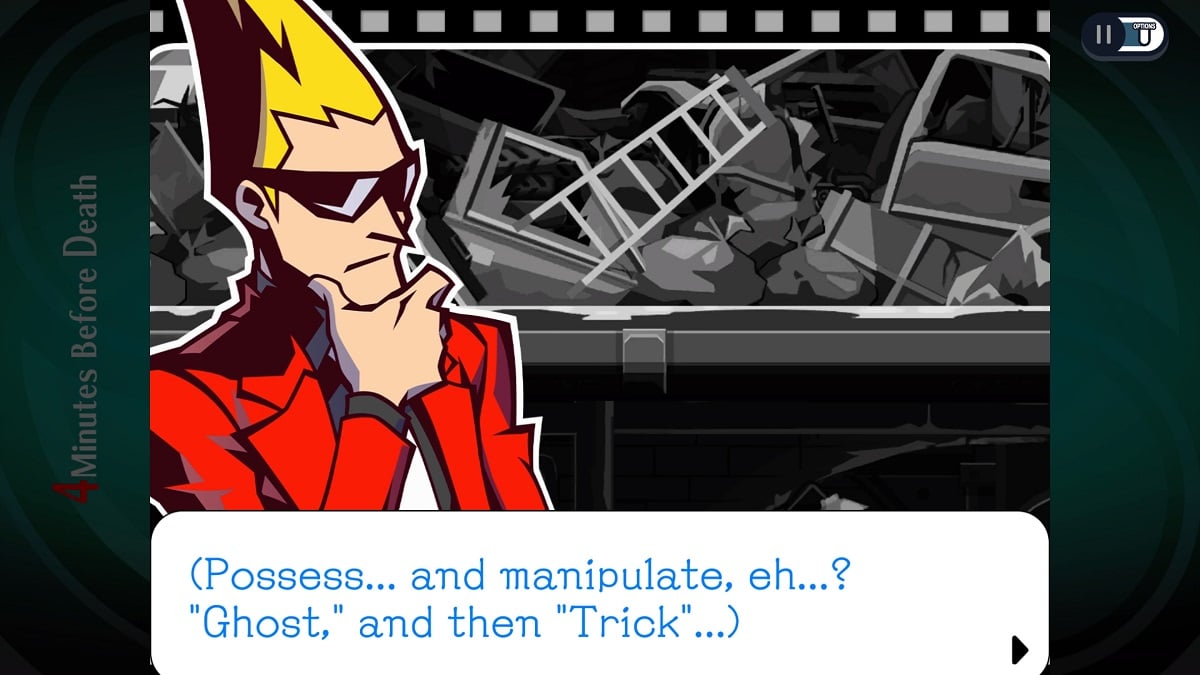
Thankfully, Ghost Trick‘s captivating story and bonkers characters have been given a second chance to make a good impression, though it won’t have to try very hard. Sure, it might be over a decade old, but it’s aged like a fine wine. In fact, I’d go so far as to say that it’s a must-play — assuming you have the stomach for it.
I won’t beat around the bush. Ghost Trick: Phantom Detective is a very, very wordy game… not that there’s anything wrong with that. But, it’s still worth pointing out; seeing as how the worst part of the gaming community managed to sully the good name of walking simulators, there are bound to be a few mouthbreathers who take issue with having to read more than a few words at a time.
For those who don’t mind doing some reading, you’re in for a real treat. As I explained in my preview from a couple of weeks back, you step into the shoes of Sissel, our chatty protagonist who also happens to be dead. Unfortunately, he can’t remember much about his life or how he met his untimely demise, and you only have one night to unravel these mysteries. The premise is simple enough, but the story quickly balloons, with additional layers of intrigue and suspense doled out like clockwork. As you might expect for a script penned by Takumi, there are plenty of zany, over-the-top characters, and it doesn’t take long to realize that the lives of Ghost Trick‘s key players are all interconnected. Since the story is easily one of the game’s best parts, I won’t be revealing too much, but I can confidently say that it’s one of the best I’ve seen in a video game to date.
As novel as the gameplay is (and we’ll get to that in a minute), it really can’t be overstated how intricately crafted the script is. Aside from delivering one of the most memorable plot twists ever, it also foreshadows them all in a very satisfying way; in fact, one of the twists is foreshadowed so well that my playthrough of this remastered version was just as memorable as when I played it the first time all those years ago since I can now easily recognize all the subtle hints that were placed along the way. The lack of voice acting might seem like an odd choice, but I think it works well in this case; given how wordy Ghost Trick is, some of its funniest moments might not land as well if the voice acting wasn’t completely perfect.
The use of text in lieu of voiceovers also makes sense when you take into account the frequent use of time travel. You see, Sissel has a few tricks up his ghostly sleeve. While he isn’t able to freely move around the world, he can hop between nearby objects to make his way around and make use of phone lines to travel long distances. Some items can also be manipulated to open up new paths of travel and influence others around you. For instance, you might need to knock a young girl’s headphones into an aquarium to ensure she won’t use them, or strum a guitar’s strings to distract a hitman from his target.
These ghostly abilities are vital to making your way around town as you gather information and unravel the overarching mystery, but they prove their worth when going back in time. One of Sissel’s most useful powers is the ability to travel into the past — specifically, four minutes before someone dies, giving you the chance to avert tragedy and keep your allies alive. These moments are perhaps the most exciting puzzle sections in the game, as it’s very rewarding to realize how one small detail will eventually lead to a character’s untimely death, and use that information to manipulate the right item at the right time to change one’s fate. As I mentioned earlier, it’s probably a good thing there is no voice acting — you’ll likely end up time-traveling to the same point more than once if you make a mistake and miss your window of opportunity to save someone, and it might get a bit grating if you had to hear the same lines repeated ad nauseam. Thankfully, the inherent trial-and-error nature of the time travel mechanic doesn’t feel restrictive or repetitive; there’s good fun to be had with experimenting and piecing together the intended solution.
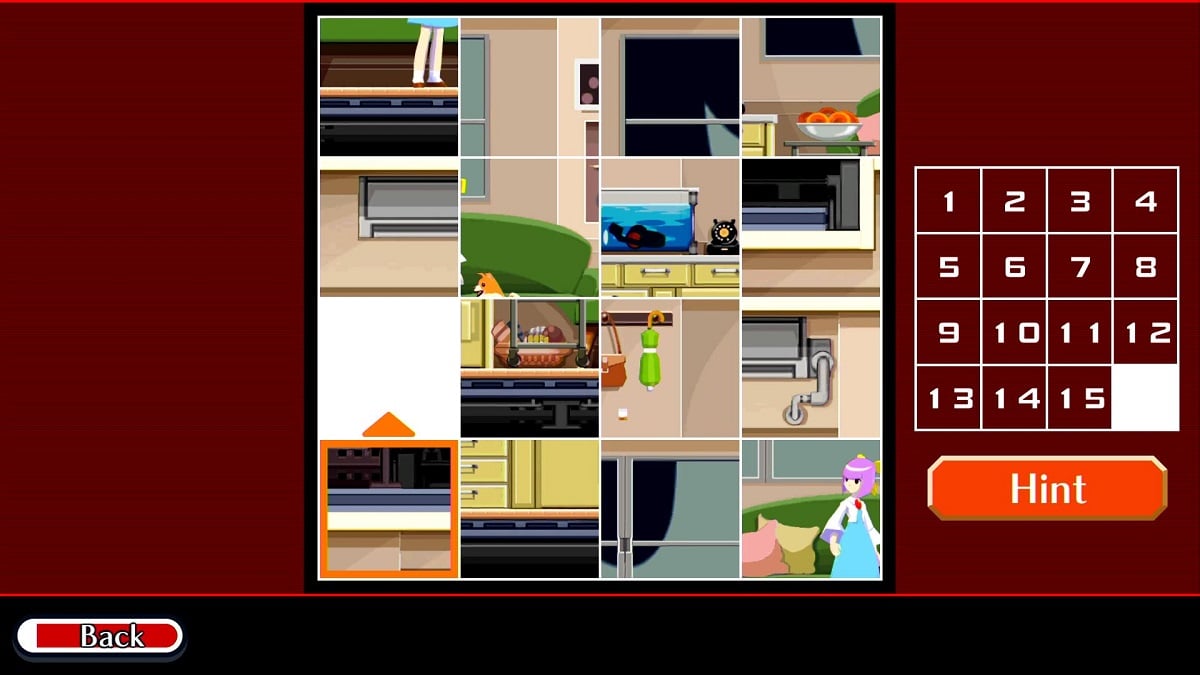
Thankfully, Capcom hasn’t messed with Ghost Trick‘s gameplay or story, opting instead to focus on the visual facelift and some quality-of-life improvements. Players now have the ability to fast-forward through text and dialogue, and there’s even a requisite “Extras” section where you can listen to the soundtrack and peruse a collection of newly-released high-res illustrations. Admittedly, a chat log would have been nice to see, though it’s not a dealbreaker by any means; the game’s 18 chapters are bookended by intros and recaps that ensure you won’t miss out on any key details.
Purists can rest easy — the game maintains its original 4:3 aspect ratio, making use of borders on either side to properly fit within the confines of a standard widescreen display. The resolution is limited to 1080p, but it’s hardly noticeable. During my playthrough, the remastered art assets were consistently clean and detailed, even when blown up on a large 4K TV. The original’s iconic character animations haven’t been butchered, and the jump from 30 to 60 FPS has only improved their buttery-smooth look.
While I’m still confused by the inclusion of unlockable sliding puzzles (which, for some reason, must be completed to unlock the platinum trophy), every other part of this remaster is nothing short of spectacular. Even a decade later, Ghost Trick: Phantom Detective is perhaps more relevant than ever, offering up a stylish and suspenseful story that stands out from your typical, bombastic AAA blockbuster.
This review is based on the PlayStation 4 version of the game. A copy was provided to us by Capcom.
Top Honors
Ghost Trick: Phantom Detective is, simply put, a masterpiece. If you're at all interested in adventure games, this one is a must-play.
Ghost Trick: Phantom Detective

